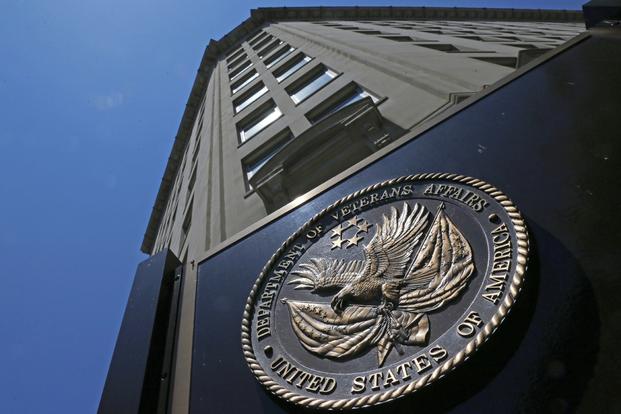WASHINGTON — Domestic violent extremist groups have found an increasing number of U.S. military veterans receptive to their recruitment efforts, experts warned lawmakers on Wednesday.
“Veterans, along with active duty and reservists, have been involved in a growing percentage of domestic terrorist plots and attacks,” said Seth Jones, the senior vice president and director of the Transnational Threats Project at the Center for Strategic and International Studies. “I should note that these are a very small percentage of veterans, as well as active duty and reservists, but it is a growing percentage.”
They target veterans due to their tactical skills and symbolic importance as devoted patriots, said Amy Cooter, a senior lecturer in sociology at Vanderbilt University who studies modern militia movements.
“Militia groups of many veterans can make symbolic appeals to other potential members, presenting themselves as patriotic organizations filled with people who have already demonstrated an unquestionable commitment to their country through their military service,” Cooter said.
Extremist groups seek to recruit veterans by manipulating the values that attract many to enlist in the first place, such as defense of the nation or people, brotherhood, courageous heroism and protection of an oath to the U.S. Constitution, according to American University’s Cynthia Miller-Idriss.
“In this way, extremist groups and movements seek to convert a sense of betrayal or anger in the government or mainstream society into mobilization to violent action that is framed as heroic defense of the real or true nation,” Miller-Idriss said. “In this sense, valor itself becomes commodified by extremist groups in ways that seek to exploit the experiences and emotions of veterans.”
Miller-Idriss, who directs the Polarization and Extremism Research and Innovation Lab, added there is an obligation to teach people about the kind of manipulation they will encounter online, whether it be veterans, children or adults.
“It’s our obligation I think to see part of our duty back to service members is to help equip them with the tools to recognize and resist that propaganda if it comes across their path,” Miller-Idriss told the House Veterans’ Affairs Committee during the first of three hearings on the threat.
Extremist groups specifically target isolated or impoverished veterans who are frustrated, confused and struggling to adapt to the civilian world, said Retired Marine Lt. Col. Joe Plenzler.
“They provide them with a tribe, a simplistic view of the world and its problems, actionable solutions and a sense of purpose,” Plenzler said. “Then they feed these vulnerable individuals a concoction of lies and an unrelenting narrative of political and social grievance.”
Miller-Idriss said she believes the U.S. needs to invest in resources to support veteran reintegration and to train veteran support organizations on how to identify warning signs and early red flags of extremist radicalization.
Social media has also played a significant role in domestic violent extremist recruitment by animating narratives and grievances that motivate extremists, allowing for communication about actions on the ground and expanding recruiting capabilities, said Oren Segal, the vice president of the Center on Extremism at the Anti-Defamation League.
Russian intelligence agencies have also been involved in the spread of disinformation and misinformation on digital platforms and have sought to spread violent ideologies on U.S. platforms, Jones said.
Apolitical Extremism
Extremism, in this case, is not defined by a particular political ideology and exists on both ends of the political spectrum.
“We are specifically using the propensity for violence as our definition because it is not our intention to label any political views, parties or opinions as inherently extremist, but rather to recognize that any viewpoint when expressed through violence crosses a dangerous line into extremism,” said Chairman Mark Takano, D-Calif.
A number of Republican lawmakers expressed concern that the hearing could increase the stigma veterans face. Rep. Jake Ellzey, R-Texas, said a hearing that stigmatizes the entire veteran community could set back efforts to provide services to veterans.
However, Plenzler said he thinks the country is capable of focusing on both extremism and other issues plaguing the veteran community.
“We should never be afraid to seek the truth and take a look at what’s going on within our society, especially within the veteran community,” he said.

